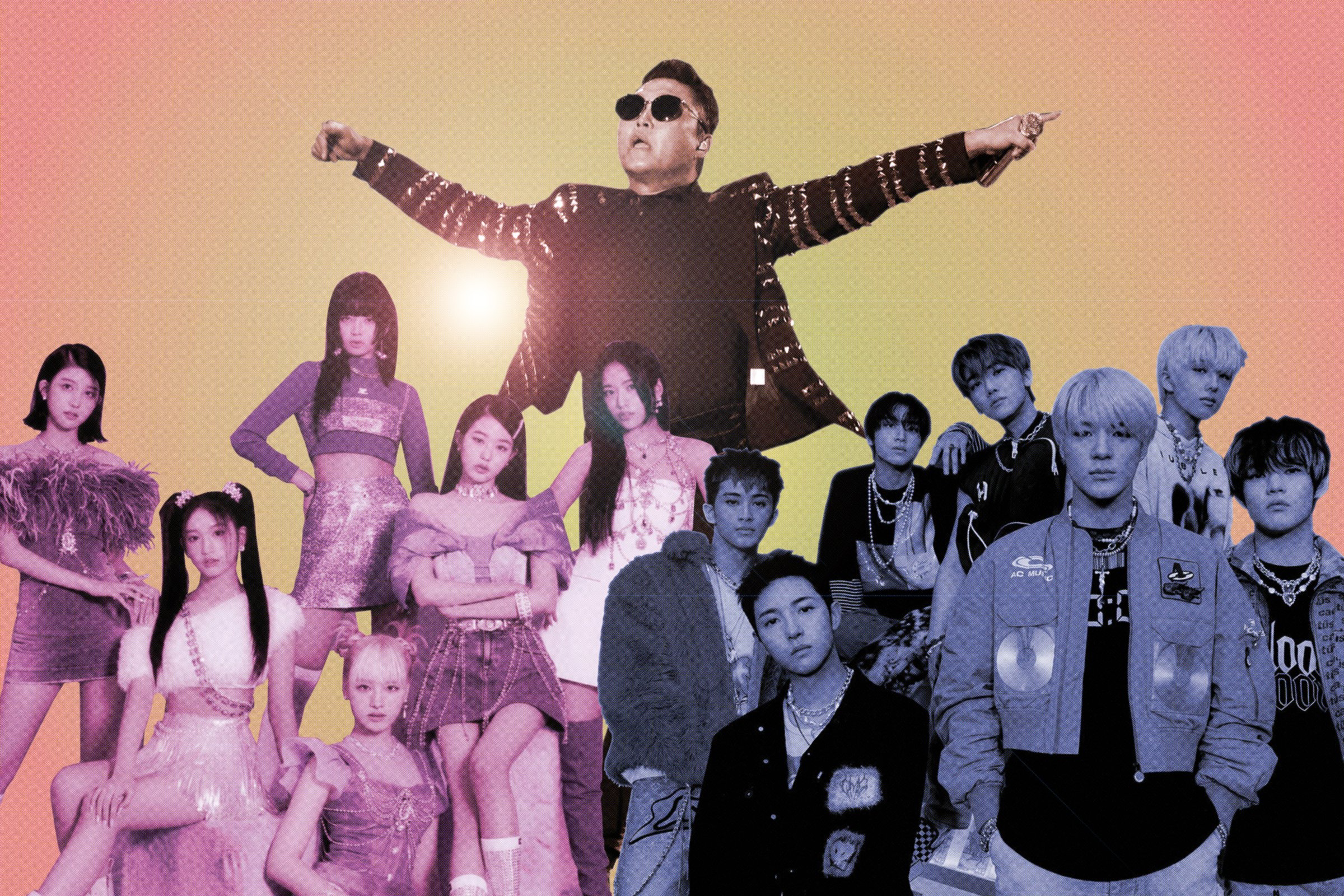Growing Up Korean Amidst the Rise of K-Pop
Image Courtesy: Strike Magazine Tallahassee
As a mixed kid, I always had mixed feelings surrounding K-Pop. I never really minded it as a genre of music- I have no problem with how it sounds, the aesthetics, or the artists- my confusion was more with the effect that it had on America as a whole. I don't look like the conventional Korean person, especially not the ones you'd see as idols. I have tan skin and curly hair and don't really have monolids, but that never really made me feel less Korean until K-pop became more popular.
I remember as a kid, going to my halmeoni (할머니) and hal-abeoji (할아버지) (Korean words for Grandma and Grandpa) and smelling the Bulgogi (불고기), and Galbi (갈비), and eating kimchi (김치), like it was a regular dish to have at the table. I remember bowing to my grandparents on Lunar New Year and eating Tteokguk (떡국) afterward. I participated in Korean culture as much as I could despite not knowing the language or ever going so, before K-pop, my Koreaness was never really a question to me.
Image Courtesy: TIME
When K-pop first came into the spotlight of America, I was like most young teenage boys, I’d make fun of it, call it stupid, you know how teenage boys are. However, there was always a sense of pride that came with it. Something from my culture was popular, no one really knew anything about Korea or its culture, and I was one of the few Korean kids in my school. As I grew and I matured, so did my appreciation for my culture, and K-pop itself, as it was getting more popular. It brought a ridiculous amount of money into Korea, and the view of Asian men was changed. K-pop artists are considered sexy and masculine, whereas, before K-pop, Asian men were never really portrayed in that light, just watching Breakfast at Tiffany’s or 16 Candles. Now that Instagram and Twitter edits were popping up of K-pop idols and K-Drama actors, Asian men were finally being seen as attractive. An appreciation for the Korean language and culture was being cultivated. However, it was a mixed blessing.
Image Courtesy: Vogue
K-pop, from my perspective, gives a narrow view of Korea as a whole. Not every Korean person is going to look like a K-pop idol. While fair skin, a slim build, and straight dark hair are what most K-pop idols and K-drama stars look like, it's not the reality of Korea as a whole. I’ve been told by K-pop stans that I’m not Korean because I don't look like a member of BTS. Although I only speak a few words of Korean, I’ve had K-pop stans, who also don't speak Korean, laugh at my pronunciation without understanding how to pronounce it themselves. I’ve also had an experience in which people become more interested in me because I said I was Korean.
As I’ve said before my problem isn't with K-pop itself but with the fan culture surrounding it. Of course, anyone can enjoy K-pop and take part in Korean culture but there needs to be certain respect and understanding that Korea is more than just idols. There is a deep and rich culture that you can appreciate. Fans have to understand that just like in America, Korean celebrities are the beauty standard and popular media often doesn't fully reflect the reality of the place in which it comes from. I’m sure most K-pop fans are respectful to the culture and the people in it, but often ones who cant separate K-pop from reality tend to be the most vocal fans. Consuming media from any culture that is not your own must come with an understanding that there are actual people behind what you consuming, and Korea has its own culture just like America.
Strike Out,
Writer: Dylan Kim
Editor: Racquel Gluckstern
Graphic Designer: Marisa Hart
Tallahassee



